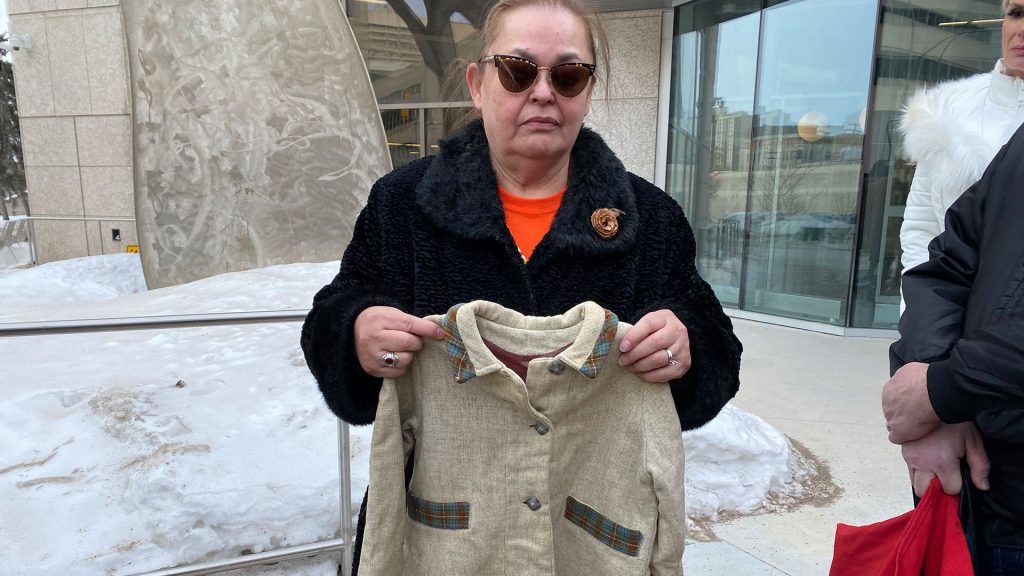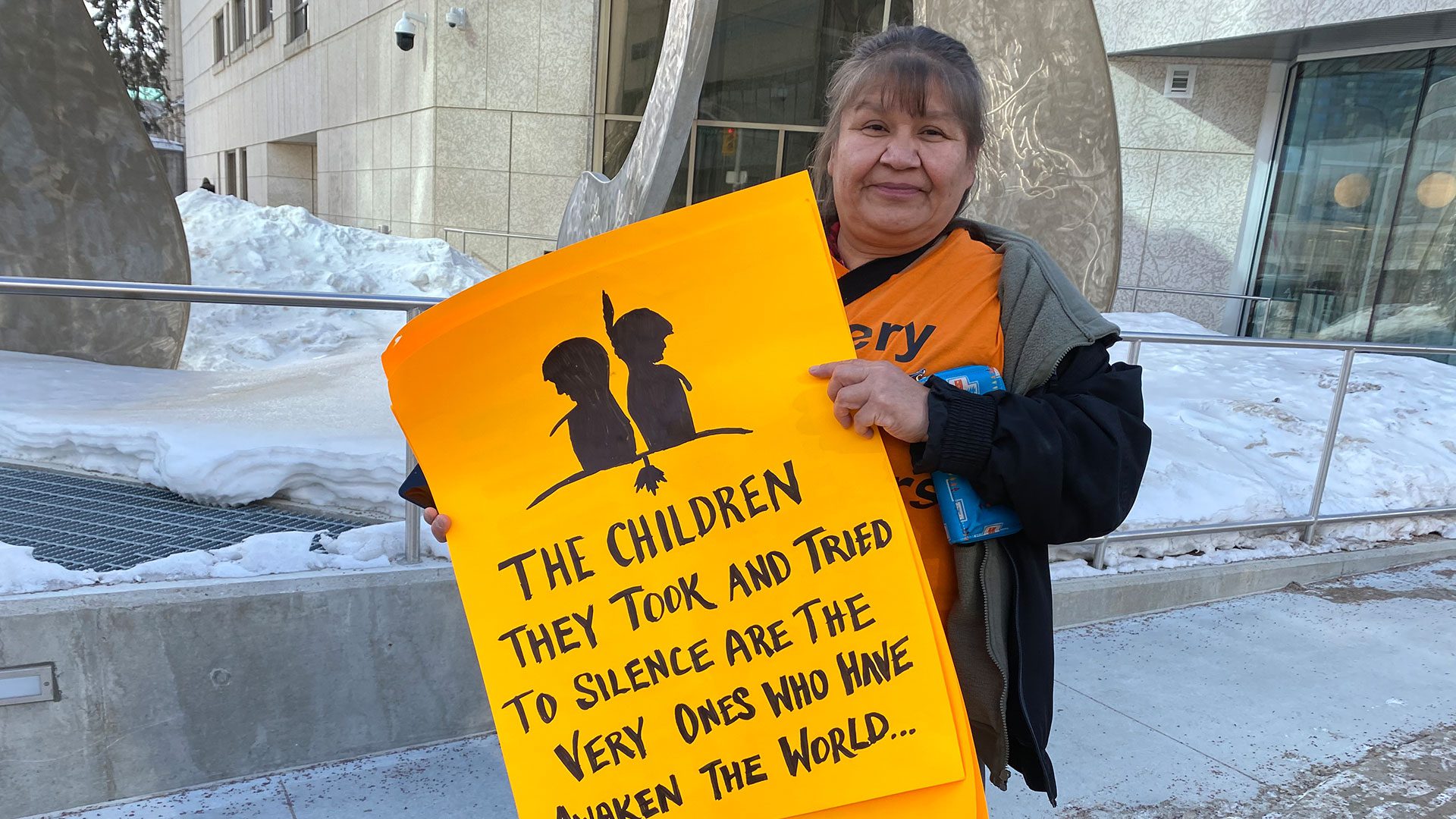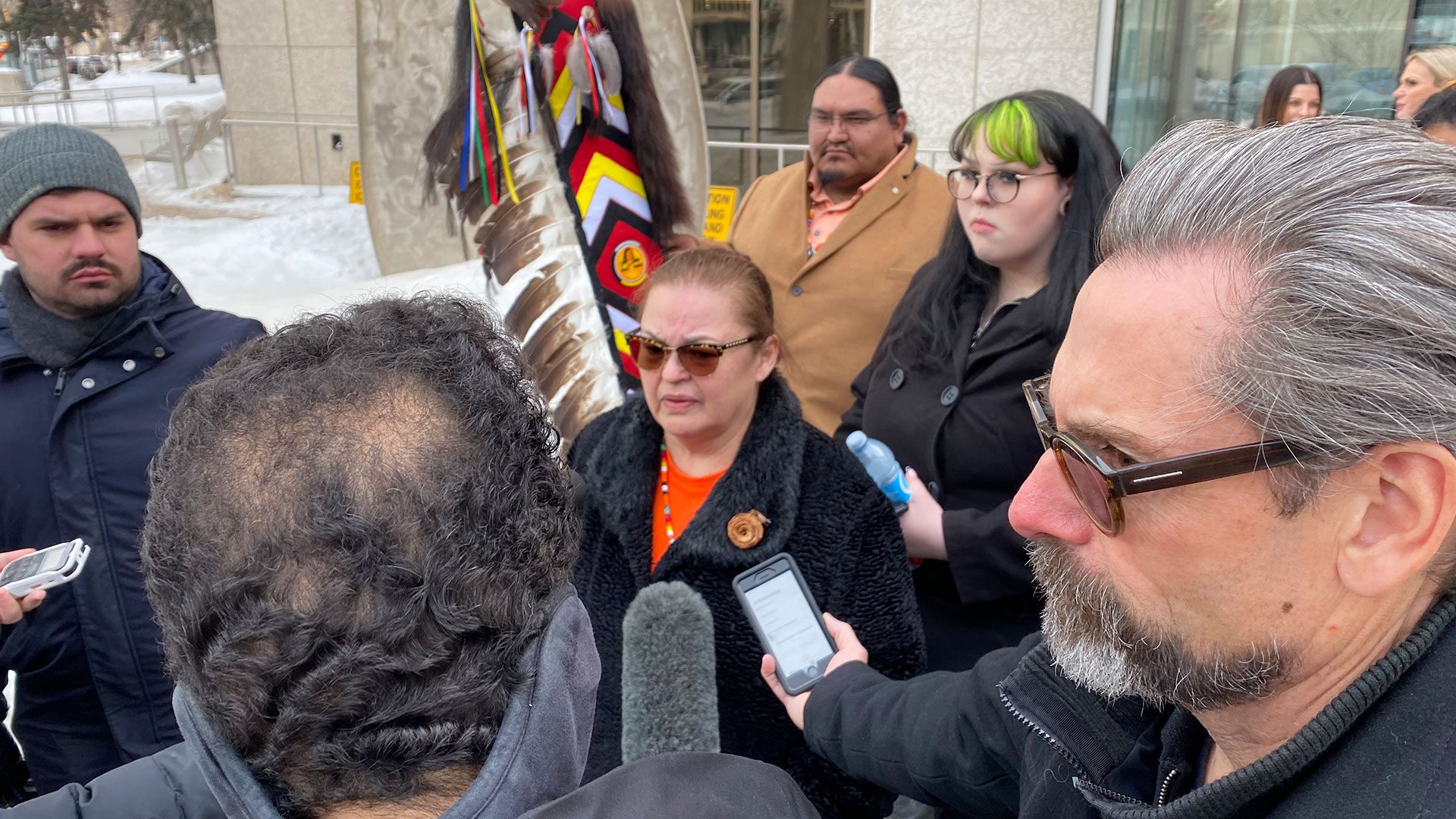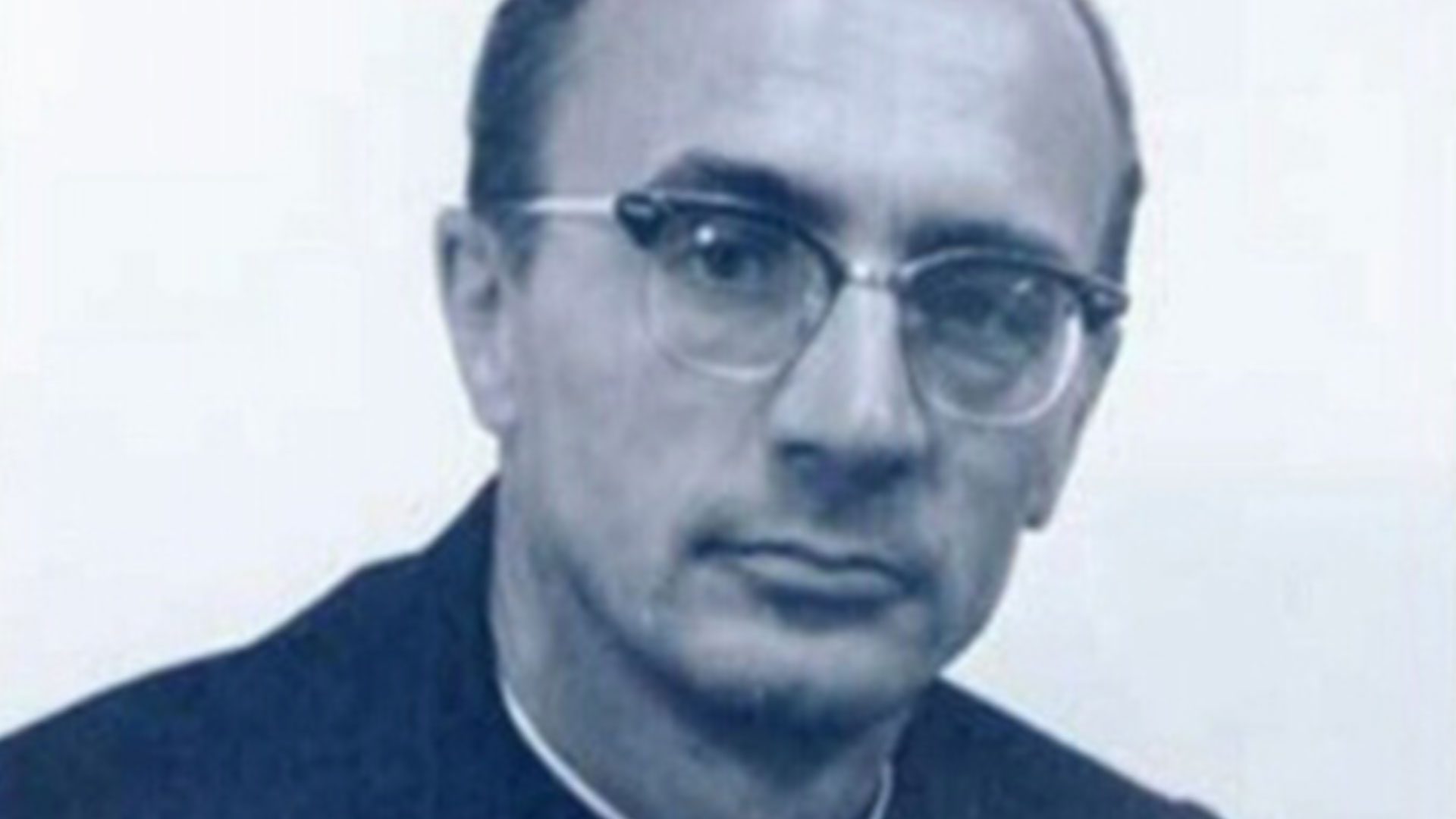
Victoria McIntosh holds the child-size jacket her mother made her to wear to residential school. Photo: Kathleen Martens/APTN News
The National Indian Residential School Crisis Line provides 24-hour crisis support to former Indian Residential School students and their families toll-free at 1-866-925-4419.
There was a moment of levity in a Winnipeg courtroom Tuesday when a Catholic priest accused of indecently assaulting a 10-year-old residential school student was likened to Monty Burns – a character in The Simpsons television show.
“He was someone who was really creepy,” said Victoria McIntosh (nee Guimond), who alleges Rev. Arthur Massé grabbed, touched and kissed her inappropriately sometime between 1968 and 1970.
Massé, now 93, has pleaded not guilty to one count of indecent assault.
McIntosh told the court it happened in the girls’ bathroom at the Catholic-run day school on Fort Alexander Reserve – now Sagkeeng First Nation – located approximately 118 km north of Winnipeg.
She said her kids were watching The Simpsons one day and Burns’ actions reminded her of Massé.
“He’d go like this,” she said, motioning her hands in a claw-like manner as the elderly priest looked on.
“I’ve not seen him in over 50 years before today.”

McIntosh, 63, waived the publication ban on her name – automatic for complainants of sex crimes – and was on the witness stand for nearly two hours. She wore an orange “Every Child Matters” t-shirt and traditional First Nations ribbon skirt.
McIntosh held a small item of clothing during her testimony on Day 1 of the two-day trial.
Massé, 93, sat opposite her in the prisoner’s box wearing black slacks, black shirt and a clerical collar. He is a member of the Missionary Oblates of Mary Immaculate (OMI), based in Ottawa.
Massé testified he didn’t remember McIntosh and denied her accusation that he pushed open a bathroom stall door, grabbed and lifted her up, and attempted to fondle and kiss her.
Defence lawyer George Green appeared to suggest it was another priest who assaulted McIntosh.
But McIntosh didn’t waver.
“We all knew” Massé liked to hang out in the girls’ bathroom although we didn’t know why, she told Crown attorney Danielle Simard.
“You didn’t question authority,” McIntosh added.

The mother of four and grandmother of nine took the oath before testifying holding an eagle feather as members of her family and First Nations community watched from the gallery. Many supporters wore ribbon skirts and orange t-shirts.
The small item of clothing she carried was a coat her mother had made for her to wear to school more than 50 years ago.
McIntosh said she was four years old in 1963 when she was first sent to residential school in the Anishinaabe community on the south shore of Lake Winnipeg. She said she transferred to a later-built day school in the community for one year before her family moved away from the area.
However, she didn’t remember Massé’s name until 2013 and filed her criminal complaint with the RCMP in 2015.
“I knew he had a top role…meaning he was one of the bosses,” she told court.
The RCMP began investigating a number of complaints in 2o11 and said they interviewed 75 witnesses.
Canada’s day and residential school system removed an estimated 150,000 Indigenous children from their homes for more than a century. The schools were funded by the federal government and operated by different churches.
Hundreds of schools were opened in or near Indigenous communities aimed at removing “the Indian from the child” as a way to integrate First Nations, Métis and Inuit children into Western society.

Court heard Massé, who was charged in June 2022, was the school administrator at the Fort Alexander Indian Residential School at the time.
McIntosh said she was in the bathroom when the stall door opened as she was getting ready to sit down.
“I knew it was him …,” she said in a halting voice. “He picked me up, tried to fondle me, tried to kiss me – he did, actually – and I was scared and nauseated at the same time. I ran away.”
She said it felt like the alleged attack lasted anywhere from one to five minutes as she illustrated how the priest used one arm to pin her against the wall and the other to touch her over her clothes. She said she was dresed in her school uniform – a wool jumper sometimes worn with a shirt underneath.
“He said, ‘Don’t say nothing’,” she testified, adding he tried to “come after me.” She said she skinned her knee while falling as she ran away.
Massé had dark hair, glasses, a receding hairline and “a grin,” McIntosh told Court of King’s Bench judge Candace Grammond.
“It all happened very fast.”
READ MORE:
Court documents reveal names of more than 100 alleged residential school abusers
Massé said he was a teacher at the day school – not an administrator – the year McIntosh alleged he assaulted her.
In addition to being a priest, Massé testified he had a master’s degree in education. He said the Oblates sent him to work in at least two residential schools on the Prairies and one in Fort Frances, Ont.
He agreed with whom McIntosh identified as being her teacher that year but denied everything else she alleged. And said he would “definitely not” hang out in the girls’ washroom.
“No, I never visited the bathrooms in the new school,” he said. “Staff had their own bathrooms.”
Outside court, the cleric wouldn’t answer questions from reporters.










